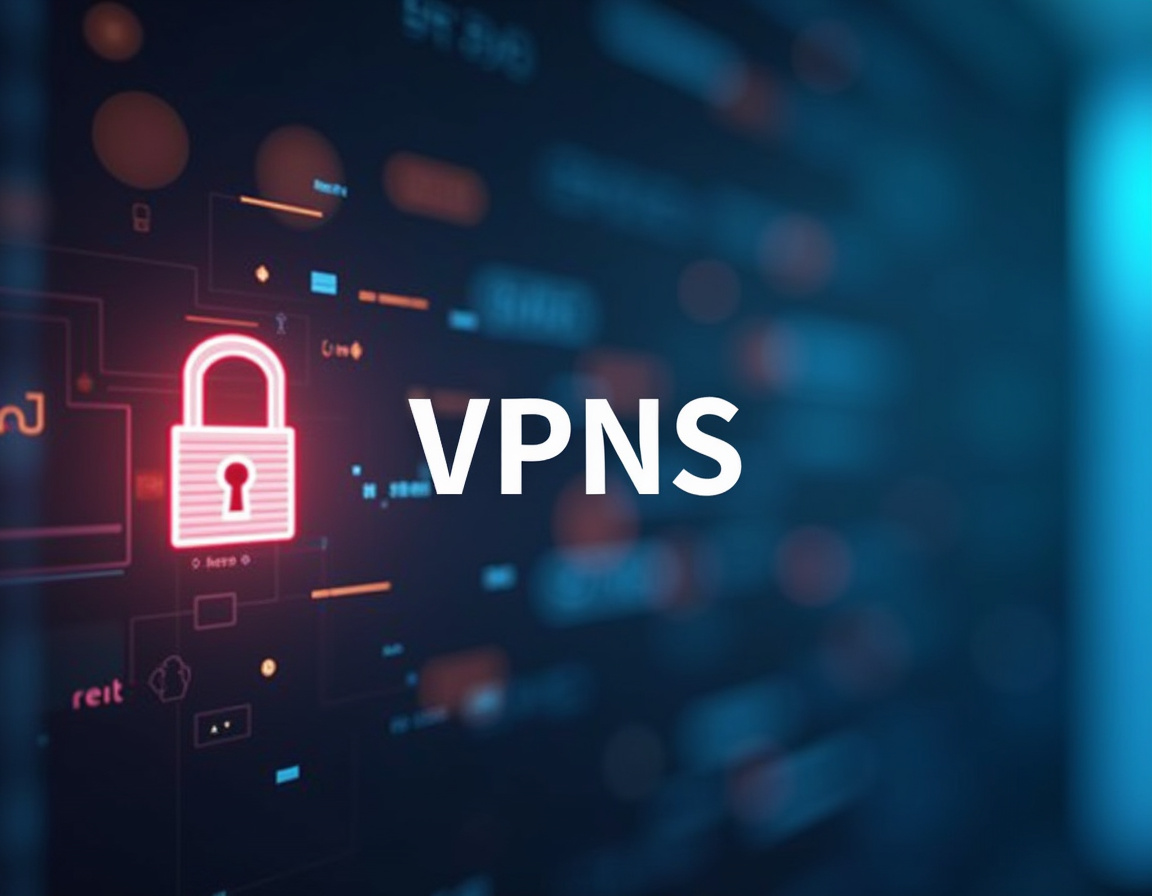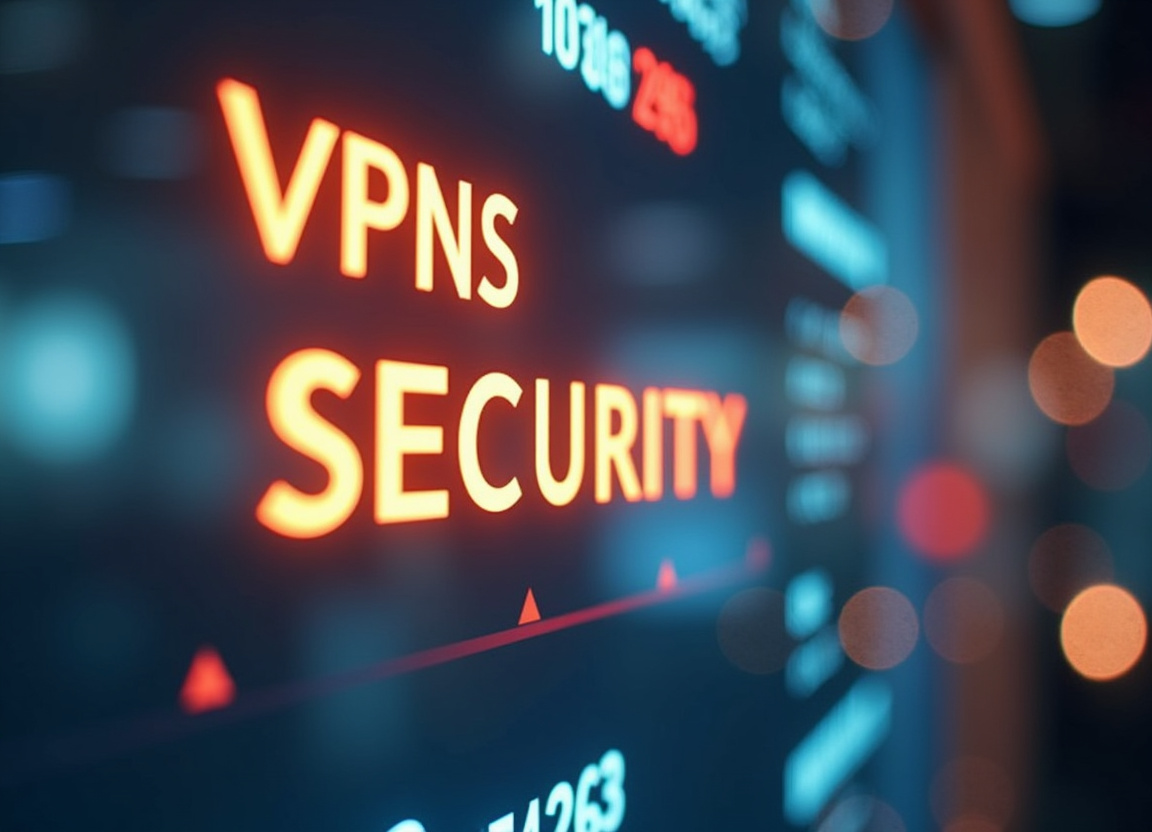VPNs for Remote Customer Support: Enhancing Communication

Table of Contents
customer support VPN
In today's interconnected world, remote customer support has become a cornerstone of business success. Companies are increasingly relying on geographically dispersed teams to provide timely and effective assistance to customers worldwide. However, this shift to remote support introduces significant challenges, particularly in ensuring secure communication, maintaining data integrity, and delivering an enhanced support experience.
Virtual Private Networks (VPNs) have emerged as a crucial solution to address these challenges, offering a secure and reliable infrastructure for remote customer support operations. A creates an encrypted tunnel between a support agent's device and the company's network, shielding sensitive customer information from unauthorized access and guaranteeing the integrity of support communications. By implementing a strong VPN solution, businesses empower remote support teams to deliver exceptional service while upholding the highest standards of security and data protection, leading to a more trustworthy and system.
This enhanced trust helps in forming stronger customer relationships, which in turn, leads to higher rates of customer retention and positive customer feedback. The deployment of a provides the necessary framework for adhering to data protection regulations, thereby mitigating the risk of data breaches, and fostering customer confidence. This foundation is built upon the core principle of initiating channels, which are resistant to eavesdropping and tampering.
VPNs achieve this by encrypting all data transmitted between the support agent and the company's network, rendering it unreadable to any third party that might attempt to intercept it. The encryption process involves transforming plaintext data into ciphertext, which can only be deciphered with the correct decryption key. This encryption key is typically exchanged between the VPN client (the support agent's device) and the VPN server (the company's network) using a secure key exchange protocol, further reinforcing the security of the connection.
Moreover, VPNs provide an additional layer of security by masking the support agent's IP address. This makes it more difficult for malicious actors to track the agent's online activity or identify their location. By routing all traffic through the VPN server, the agent's IP address is effectively concealed from the outside world, mitigating the risk of targeted attacks and protecting the agent's privacy.
This is particularly important in today's threat landscape, where cybercriminals are becoming increasingly sophisticated in their targeting methods. In addition, VPNs can be configured to enforce strict access control policies, ensuring that support agents only have access to the resources they need to perform their duties. This principle of least privilege helps to minimize the potential impact of a security breach, as an attacker who compromises a support agent's account will only be able to access a limited amount of data.
The access control policies can be tailored to specific roles and responsibilities, ensuring that each agent has the appropriate level of access to sensitive customer information, thereby preventing unnecessary exposure of private or confidential data. The use of a centralized VPN server enables streamlined management and monitoring of network traffic, facilitating the detection and prevention of potential security threats. VPNs offer robust logging and auditing capabilities, providing businesses with valuable insights into network activity and facilitating compliance with regulatory requirements.
The centralized management also simplifies the process of updating security policies and software, ensuring that all support agents are using the latest security measures. This can be particularly important in rapidly evolving threat landscapes where new vulnerabilities are constantly being discovered. Furthermore, the comprehensive logging and auditing capabilities of VPNs enable businesses to track user activity; identify and respond to security incidents more quickly.
By implementing a VPN solution, customer support teams can operate remotely with confidence, knowing that their communications are secure and data is safe.
data integrity
Beyond their security benefits, VPNs also play a vital role in maintaining throughout customer support interactions. Data integrity refers to the accuracy, consistency, and reliability of data, ensuring that it remains unaltered during transmission and storage. In the context of remote customer support, maintaining data integrity is crucial for providing accurate information to customers, resolving issues effectively, and avoiding costly errors.
Erroneous data in support communications can lead to misdiagnosis of problems, incorrect solutions, and ultimately, dissatisfied customers. VPNs achieve this by employing various mechanisms to protect data from unauthorized modification or corruption during transmission. One of the primary mechanisms is the use of cryptographic hashing algorithms, which generate a unique fingerprint of the data before it is transmitted.
This fingerprint, also known as a hash, is then appended to the data packet. Upon receipt, the recipient recalculates the hash of the received data and compares it to the original hash. If the two hashes match, it confirms that the data has not been altered during transmission.
If the hashes do not match, it indicates that the data has been tampered with, and the recipient can discard the packet. This process ensures that any attempt to modify the data during transmission will be detected, preserving the of the support communications. The implementation of robust hashing algorithms, combined with secure transmission protocols, forms a strong defense against data corruption and tampering.
Furthermore, VPNs can also employ error correction codes to detect and correct errors that may occur during transmission. Error correction codes are mathematical algorithms that add redundant information to the data, allowing the recipient to detect and correct errors that may have been introduced by noise or interference. By implementing error correction codes, VPNs can ensure that even if some data is corrupted during transmission, the recipient can still recover the original data, minimizing the risk of inaccurate or incomplete information being provided to customers.
This is particularly important in environments where network connections may be unreliable or subject to interference, such as when support agents are working from home or on the road. In addition, VPNs can be configured to implement data validation checks, ensuring that data conforms to predefined formats and standards. Data validation checks can help to prevent errors caused by incorrect data entry or inconsistencies in data formats.
By ensuring that data is consistent and accurate, VPNs can improve the quality of customer support interactions and reduce the risk of errors. Data integrity is not only about preventing malicious tampering, but also about ensuring that data is entered and processed correctly. The maintenance of is not only important for providing accurate information to customers, but also for meeting regulatory requirements and avoiding legal liabilities.
Many industries are subject to data protection regulations that require businesses to protect the integrity of customer data. By implementing a VPN solution, businesses can demonstrate their commitment to data protection and comply with these regulatory requirements. Furthermore, VPN usage provides the necessary level of security that sensitive data requires.
Moreover, maintaining data integrity can also help businesses to avoid costly errors and legal liabilities that may arise from inaccurate or incomplete customer data. Deficiencies in can lead to disputes, financial losses, and reputational damage. Companies, need to proactively manage its , especially when it is related to customer management.
enhanced support
For an environment, VPN implementation extends beyond security and , addressing essential performance and accessibility requirements. VPNs can optimize network traffic routing, reduce latency, and improve overall responsiveness, which are all fundamental to delivering seamless and efficient customer support. Slow or unreliable network connections can significantly impact the productivity of support agents and the satisfaction of customers.
VPNs can mitigate these issues by providing a more stable and optimized network connection. For instance, VPNs can automatically route traffic through the most efficient path, bypassing congested or unreliable network segments. This optimization can significantly reduce latency, improve connection speeds, and enhance the overall user experience for both support agents and customers.
This intelligent routing ensures that data packets reach their destination as quickly as possible, minimizing delays and improving the responsiveness of support applications. In scenarios where support agents are located in geographically diverse locations, VPNs can also provide a consistent and reliable network connection, regardless of their physical location. This ensures that agents can access the resources they need to provide timely and effective support, without being hampered by network issues or performance bottlenecks.
A unified and dependable network infrastructure is a key component of a . The consistent experience creates more professional interactions between the support stuff and the customer. Moreover, VPNs can also facilitate access to geographically restricted content, enabling support agents to access information that may not be available in their region.
This can be particularly useful for international customer support teams that need to access resources or data that are specific to certain countries or regions. For example, a support agent in Europe may need to access a knowledge base that is hosted on a server in the United States. A VPN can allow the agent to connect to a server in the United States, making it appear as if they are physically located in that country, and enabling them to access the knowledge base.
Beyond optimizing network performance and providing access to geographically restricted content, VPNs can also enhance the overall user experience for support agents by simplifying the process of connecting to the company network. Instead of having to manually configure network settings and enter complex passwords, agents can simply launch the VPN client and connect to the network with a single click. This streamlined connection process can save time and reduce frustration, allowing agents to focus on providing excellent customer support.
Furthermore, VPNs can also be integrated with other security tools, such as multi-factor authentication, to provide an even higher level of security. Multi-factor authentication requires users to provide multiple forms of identification before they can access the network, such as a password and a code sent to their mobile phone. By integrating VPNs with multi-factor authentication, businesses can ensure that only authorized users can access their network, even if their passwords have been compromised.
The flexibility to set up a multi-factor authentication system provides great flexibility in security matters. Overall, VPNs can significantly enhance the performance which leads to , accessibility, and user experience for remote customer support teams. By optimizing network traffic routing and reducing latency and also helping with regulatory compliance issues.
customer support VPN
Selecting the appropriate solution requires careful consideration of several key factors, including security features, performance capabilities, ease of use, and cost-effectiveness. Not all VPNs are created equal, and businesses need to choose a solution that meets their specific needs and requirements. A comprehensive assessment of these factors will ensure that the chosen VPN solution provides the necessary level of security, performance, and usability to support remote customer support operations effectively.
Security features are paramount when selecting a VPN for customer support. The VPN should offer strong encryption protocols, such as AES-256, to protect data from unauthorized access. It should also support secure key exchange protocols, such as IKEv2/IPsec or WireGuard, to ensure that encryption keys are exchanged securely.
In addition, the VPN should have a strict no-logs policy, meaning that it does not store any data about users' online activity. This is crucial for protecting the privacy of both support agents and customers. A VPN audit by third party will guarantee the services are being properly audited.
Performance capabilities are also critical for ensuring a seamless and efficient customer support experience. The VPN should provide fast connection speeds and low latency to minimize delays and improve the responsiveness of support applications. It should also have a large network of servers located in geographically diverse locations to ensure that agents can connect to a server that is close to their physical location.
This can significantly improve connection speeds and reduce latency, particularly for international customer support teams. The faster speeds provided by an high performance VPN can lead to . Ease of use is another important factor to consider, particularly for businesses with a large number of remote support agents.
The VPN should be easy to install, configure, and use, with a user-friendly interface that requires minimal technical expertise. It should also be compatible with a wide range of devices and operating systems, including desktops, laptops, tablets, and smartphones. A simple and intuitive interface can save time and reduce frustration for support agents, allowing them to focus on providing excellent customer support.
Cost-effectiveness is also an important consideration, particularly for small and medium-sized businesses. VPNs can vary significantly in price, and businesses need to choose a solution that fits their budget while still meeting their security and performance requirements. Some VPN providers offer tiered pricing plans based on the number of users or the amount of bandwidth used.
Businesses should carefully evaluate these pricing plans to determine which one is the most cost-effective for their needs. Finally, businesses should also consider the level of customer support offered by the VPN provider. The provider should offer responsive and knowledgeable customer support to help businesses troubleshoot any issues that may arise.
secure communication
In conclusion, VPNs are an indispensable tool for businesses seeking to optimize their remote customer support operations. By providing channels, maintaining , and enhancing overall performance, VPNs empower remote support teams to deliver exceptional service while upholding the highest standards of security and data protection. The benefits of implementing a robust solution are manifold, ranging from increased customer confidence and compliance with data protection regulations to improved agent productivity and reduced risk of data breaches.
A well-chosen and properly implemented VPN solution is an investment that pays dividends in the form of enhanced security, improved data integrity, and a more seamless and efficient support experience for both agents and customers. The ability to guarantee and maintain is a corner stone for the operation of contact centers today. As remote customer support continues to evolve and become increasingly critical to business success, the importance of VPNs will only continue to grow.
Businesses that embrace VPN technology will be well-positioned to thrive in the modern digital landscape, while those that fail to prioritize security and data protection will risk falling behind. The deployment of a creates a strong operational perimeter. By carefully considering the key factors outlined above and selecting a VPN solution that meets their specific needs, businesses can unlock the full potential of remote customer support and deliver exceptional service that exceeds customer expectations.
Furthermore, organizations should consider integrating their VPN solution with other security tools, such as intrusion detection systems and security information and event management (SIEM) systems, to provide a more comprehensive security posture. This integration can help to detect and respond to security threats more quickly and effectively, minimizing the risk of data breaches and other security incidents. Looking ahead, the future of VPNs in remote customer support is likely to be shaped by several emerging trends.
One trend is the increasing adoption of cloud-based VPN solutions, which offer greater scalability, flexibility, and cost-effectiveness compared to traditional on-premises VPN solutions. Cloud-based VPNs can be easily deployed and managed, and they can scale up or down to meet changing business needs. Another trend is the growing use of artificial intelligence (AI) and machine learning (ML) to enhance VPN security.
AI and ML algorithms can be used to detect and prevent security threats in real-time, as well as to optimize network performance and improve the user experience. For example, AI can be used to identify and block malicious traffic, while ML can be used to route traffic through the most efficient path and to predict and prevent network congestion. In addition, the rise of edge computing is likely to impact the future of VPNs in remote customer support.
Edge computing involves processing data closer to the source, which can reduce latency and improve performance. By deploying VPN servers at the edge of the network, businesses can provide even faster and more reliable connections for remote support agents.
Stay Updated
Get the latest VPN news, tips, and exclusive deals to your inbox.




